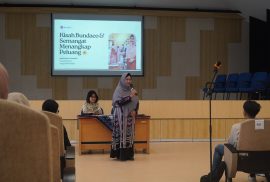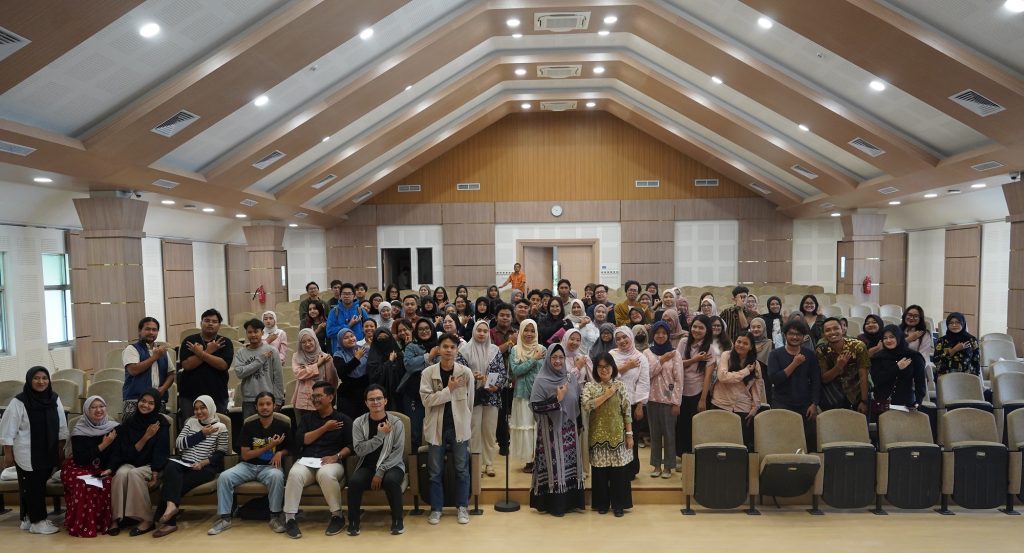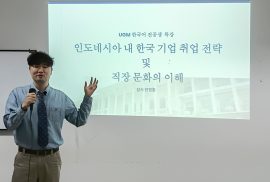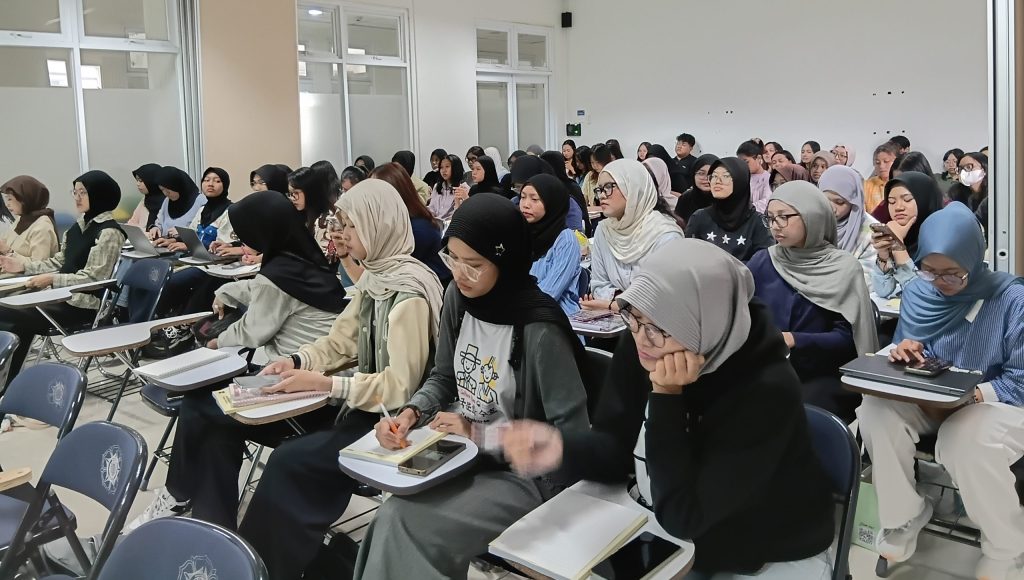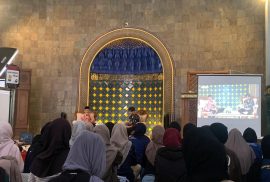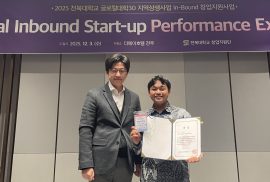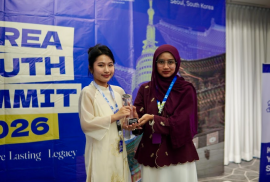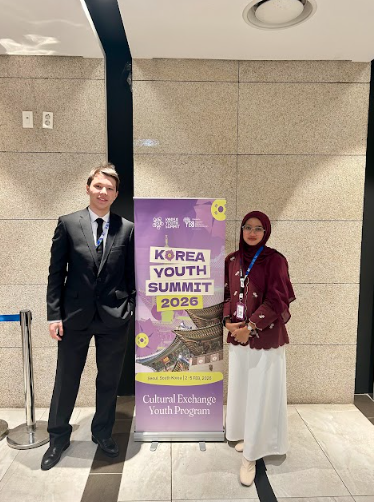Yogyakarta, February 24, 2026 – The Faculty of Cultural Sciences Universitas Gadjah Mada (FIB UGM) held a Soft Skills Training titled “Briefing for Graduating Students and Undergraduates” from 1:00 to 3:00 p.m. WIB at the 3rd Floor Auditorium of the Poerbatjaraka Building. The event featured an alumna of the Indonesian Literature Program at FIB UGM and Chair of IWAPI, as well as founder of Bundaco, Erwina Kusmarini, S.S., who shared her experience in identifying business opportunities and building independence after graduation.
In her remarks, Vice Dean for Research, Community Service, Cooperation, and Alumni of FIB UGM, Dr. Mimi Savitri, M.A., Ph.D., emphasized the importance of providing students with preparation prior to graduation. “This activity certainly offers valuable preparation and insights for all of you after graduating from FIB UGM,” she said.
The Coordinator for Academic and Student Affairs, Yusuf Sulistiyo, A.Md., S.Psi., M.M., delivered academic announcements before the main session began. The moderator, Dr. phil. Ramayda Akmal, S.S., M.A., then introduced the speaker and presented her brief profile.
In her presentation, Erwina Kusmarini highlighted the theme “The Story of Bundaco and the Spirit of Seizing Opportunities.” She recounted how she started her business in 2004 from her home in Klaten with a single household sewing machine. She began her entrepreneurial journey without a family background in business and without formal education in engineering or economics. Limited capital, networks, and technical skills were among the challenges she faced in the early stages. She learned directly from local tailors, fabric vendors, and the surrounding community to develop her enterprise.
Bundaco, short for Bunda Collection, has grown into a garment manufacturing business producing school uniforms, community apparel, Muslim fashion, and custom orders for institutions and organizations. She emphasized the importance of maintaining quality and service as the foundation for business growth.
When the COVID-19 pandemic struck, production shifted to personal protective equipment and cloth masks to respond to community needs. This innovation sustained the business while expanding its market reach. In the following years, she was entrusted to lead IWAPI Klaten and initiated garment production and digital marketing training programs for hundreds of women-led micro, small, and medium enterprises.
During the question-and-answer session, Erwina encouraged students to be courageous in taking the first step and to continue learning. She stressed that a background in cultural studies is not a barrier to entrepreneurship. Social awareness and the ability to recognize opportunities, she noted, are essential assets in building a business.
The training concluded with the presentation of a token of appreciation from the faculty to the speaker, followed by a group photo session. Through this initiative, FIB UGM seeks to prepare graduates who are adaptive, competitive, and capable of making meaningful contributions to society. Such programs are expected to foster a generation that is not only ready to enter the workforce, but also able to create opportunities and empower their communities in a sustainable manner.
[Humas FIB UGM, Candra Solihin]

